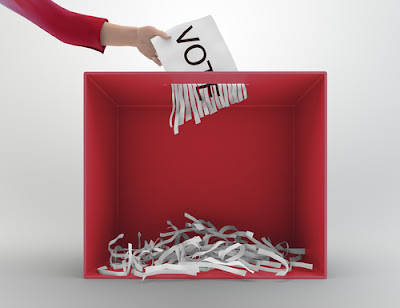nyah nyah, part two
Thanks for your good wishes. This job is going to work out well, I can see that. Having worked at corporate law firms for 16 years, I know how to read them. This is definitely a good firm. I really lucked out.
* * * *
Globe and Mail columnist Jeffrey Simpson agrees with us about Harper and the supposed liberal media bias. He surveys the media landscape, and the PM comes up looking "brittle and imperious".
* * * *
Globe and Mail columnist Jeffrey Simpson agrees with us about Harper and the supposed liberal media bias. He surveys the media landscape, and the PM comes up looking "brittle and imperious".
Conservative leaders, some of whom become prime ministers, share one belief: that the national media, especially in Ottawa, are hostile to them personally and their party.
Joe Clark always believed that Ottawa journalists had it in for him, in contrast to how they flipped over Pierre Trudeau.
Brian Mulroney was fixated by the media, and how he felt Ottawa journalists unfairly trashed his government. Check out the Peter Newman tapes. They are full of Mr. Mulroney's grousing about journalists.
Now comes Stephen Harper, manifesting the same reflexes. "Unfortunately, the press gallery has taken the view they are going to be the opposition to the government," Mr. Harper said this week, adding: "I have trouble believing that, frankly, a Liberal prime minister would have this problem."
He should ask Paul Martin or John Turner. Or Jean Chrétien, whose government was rocked by endless media coverage of scandals, real or imagined. Did not Mr. Harper's party in opposition feast on that same media coverage month after month? Was it not The Globe and Mail that broke and pursued the sponsorship affair long before the Auditor-General sank her fangs into it?
Rational argument, however, will not change Conservative minds.
In the 1980 election, only two newspapers in Canada -- the ever-faithful Liberal organ, the Toronto Star, and the Windsor Star -- supported the Liberals. Yet the Liberals won the election. Still, the Conservatives believed that the press had nailed them.
Conservatives are no different than other media consumers: They read into the media what they want. They remember only a fraction of what they read or see. They tend to remember those bits that confirm existing beliefs -- in the Conservatives' case, that the media is hostile.
Ask a Conservative for confirming evidence. Out will come references to this or that story, this television news item or that radio report, a particular column or editorial. It's the tyranny of the anecdote.
What have we actually got across Canada?
AM radio is overwhelmingly right wing; listen to the open-line hosts. CBC Radio leans left, or rather gives voice to the aggrieved. Put the entire radio world together, and the balance tilts conservative.
Television? CBC tilts left, private TV right. Again, given the larger audience for private TV, the television world tilts conservative.
Newspapers? The Toronto Star is proudly Liberal, and it's the largest paper in the country. Most of the CanWest papers are editorially conservative and, in the case of the National Post, extremely conservative.
The Globe and Mail endorsed the Conservatives in the last election, and tries to be down the middle in news; it has a group of hard-right columnists, some centrists and a couple on the left. The Sun papers are hard right. Maclean's magazine, under Kenneth Whyte's direction, is using the National Post formula of hard-right politics.
The French-language press, by and large, has been extremely respectful thus far of the Conservatives.
So, yes, there are media outlets that do not tend to favour Conservatives, but there are more that do. Some overtly tub-thump for conservative causes and the Conservative Party. The vast majority of newspapers in the last election endorsed the Conservatives.
Much of the media coverage of the Harper campaign was positive, even enthusiastic, because the party ran a good campaign -- and electoral journalism, alas, is mostly about horse-race reporting so that the party doing well gets positive coverage confirming why it is winning.
But, as we said, facts don't count. Even though the government is doing extremely well in public opinion surveys, it sees enemies everywhere, including the press and especially the Parliamentary Press Gallery.
The Prime Minister believes that the media has it in for Conservatives, and he isn't going to take it.
In fact, he's going to behave in such a way that it's his way or the doorway, believing that the general public, or at least the portion of the public that prefers Conservatives, shares his reflexes about the media.
The Prime Minister will control information to the extent that he can. He's going to decide who can ask him questions. He's going to run a not-so-friendly dictatorship in relations with the press because, as he sees things, this is war.
He's going to outflank the Parliamentary Press Gallery by taking his presence to the local media, where the questions will be more respectful and often less informed. He thinks the public couldn't care less about relations with the press.
Maybe he's right, except that it shows a brittleness and imperiousness that eventually will haunt him.

Comments
Post a Comment